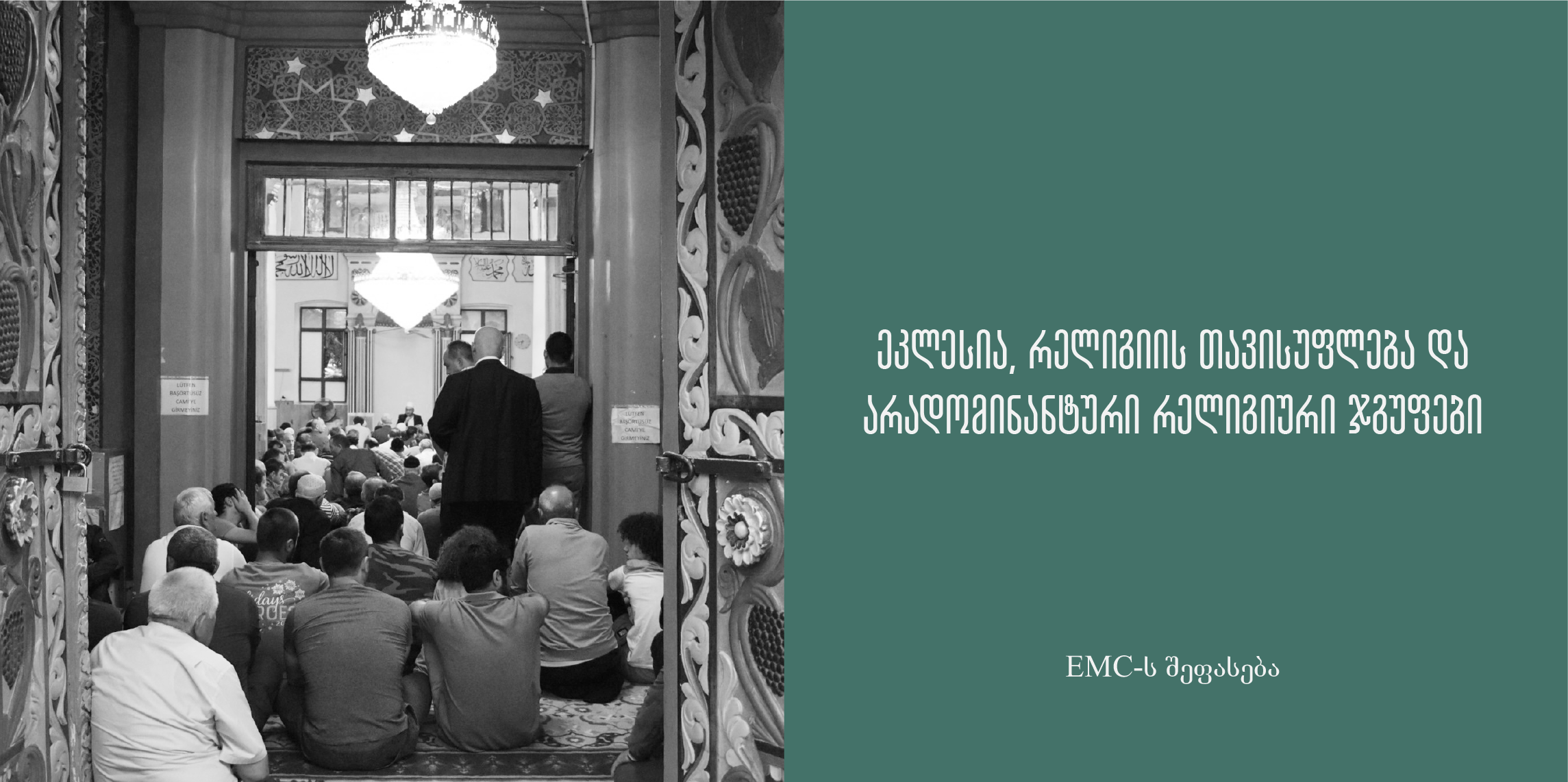საერთო ცხელი ხაზი +995 577 07 05 63


Many of the challenges in terms of the protection of the rights of religious minorities (including existing non-secular and discriminatory funding practices, lack of restitution policies in relation to the religious minorities) were still relevant this year.
Moreover, this year, initiatives aimed at worsening the legislative standards and safeguards related to the Freedom of Religion have found their way in the agenda (including the adoption of a special law on religion, ban on Muslim women to wear religious paraphernalia, initiative to scrap military exemptions for the non-dominant religious clerics from joining compulsory military service). These initiatives were suspended largely due to the advocacy by religious organizations and human rights actors.
Reports published this year by ECRI, FCNM, the Oslo Coalition, the international expert invited by the UN and the EU, Maggie Nicholson point to the weak trust in the State Agency for Religious Affairs and the problem of control and favoritism-based approaches in the work of the agency. Despite the criticism and recommendation by significant number of religious organizations, the government has not abolished this body or transformed its mandate and policy so far and is still trying to maintain the current problematic status quo.
This year the process of building a new mosque in Batumi showed an interesting dynamic. On September 30, 2019, the Batumi City Court made a historic decision on the construction of the mosque and found the Batumi City Hall's refusal to build a new mosque discriminatory and unlawful. However, the Batumi City Hall appealed the decision and again used a strategy of delaying the process. The construction of a new mosque in Batumi is a historic demand of the Georgian Muslim community, and it is coming from a weak political and cultural representation of Islam and inadequate recognition and protection of the Muslim rights, however the government does not respond to this problem adequately and continues to ignore it.
This year, the problem of severe human rights situation of the Muslim community in Adigeni municipality was again evident. The state unlawfully and unjustifiably transferred the pasture lands (approximately 8 ha) belonging to Muslims living in the villages of Kikibo and Dertseli in Adigeni municipality to the Patriarchate. The existing land is a vital resource for Muslim peasants, and losing the land further aggravates the already difficult social situation of the families living in the highlands. Despite the number of attempts by EMC to negotiate a fair solution, the problem remains unresolved. At this stage, the EMC is currently litigating this case in the courts. Following the religious conflicts in the village of Chela in 2013, in the village of Mokhe in 2014, and in the village of Adigeni in 2016, this case again demonstrates the grave legal situation of the Muslim community in the region and the need for timely and systematic state intervention. However, in a situation where state policy on freedom of religion has been essentially delegated to the organization which, in itself, has problematic ideas and approaches, it is difficult to expect positive change.
Catholic shrine in Akhalkalaki was damaged again this year, which is a continuation of similar acts of vandalism in the region in previous years.
In 2019 cases of religious indoctrination were again revealed in public schools of high mountainous Adjara. During a meeting with school principals and the representatives of the Eparchy of Skhalta in the local resource center in Keda village, school principals made problematic statements about the students' “return and conversion to their native religion”.
This year there was also a crisis in the Orthodox Church. Public statements by influential clergymen of the Patriarchate, including (former) Bishop Jacob and Chkondidi (former) Bishop Peter Tsaava, indicated the possible influence of the authorities on ongoing church processes and the existence of violent and canonically unacceptable sexual practices in the church. The aforementioned statements have not been properly investigated, and the crisis in realm of the Patriarchate has not become a prerequisite for internal reflection and reform. By punishing critical bishops, the Synod maintained the status quo and suspended the discussion of serious allegations. It is noteworthy that the decision / recommendation of the Synod on October 31, 2019, on the pardon of Archbishop Giorgi Mamaladze, after several years of deliberation by the Synod, has not yet been decided by the President of Georgia
The website accessibility instruction